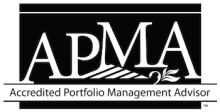Chartered Financial Analyst® (CFA®)
The Chartered Financial Analyst® (CFA®) charter is a globally respected, graduate-level investment credential established in 1962 and awarded by CFA Institute — the largest global association of investment professionals.
There are currently more than 170,000 CFA® charter holders working in 170 countries. To earn the CFA® charter, candidates must: (1) pass three sequential, six-hour examinations; (2) have at least four years of qualified professional investment experience; (3) join CFA Institute as members; and (4) commit to abide by, and annually reaffirm, their adherence to the CFA Institute Code of Ethics and Standards of Professional Conduct.
High Ethical Standards
The CFA Institute Code of Ethics and Standards of Professional Conduct, enforced through an active professional conduct program, require CFA® Charterholders to:
- Place their clients’ interests ahead of their own
- Maintain independence and objectivity
- Act with integrity
- Maintain and improve their professional competence
- Disclose conflicts of interest and legal matters
Global Recognition
Passing the three CFA exams is a difficult feat that requires extensive study (successful candidates report spending an average of 300 hours of study per level). Earning the CFA® charter demonstrates mastery of many of the advanced skills needed for investment analysis and decision making in today’s quickly evolving global financial industry. As a result, employers and clients are increasingly seeking CFA® Charterholders — often making the charter a prerequisite for employment. Additionally, regulatory bodies in 38 countries/territories recognize the CFA® charter as a proxy for meeting certain licensing requirements, and more than 466 colleges and universities around the world have incorporated a majority of the CFA Program curriculum into their own finance courses.
Comprehensive and Current Knowledge
The CFA Program curriculum provides a comprehensive framework of knowledge for investment decision making and is firmly grounded in the knowledge and skills used every day in the investment profession. The three levels of the CFA Program test a proficiency with a wide range of fundamental and advanced investment topics, including ethical and professional standards, fixed-income and equity analysis, alternative and derivative investments, economics, financial reporting standards, portfolio management, and wealth planning.
The CFA Program curriculum is updated every year by experts from around the world to ensure that candidates learn the most relevant and practical new tools, ideas, and investment and wealth management skills to reflect the dynamic and complex nature of the profession.
Certified Financial Planner™ (CFP®)
The CFP® certification is a voluntary certification; no federal or state law or regulation requires financial planners to hold CFP® certification. It is recognized in the United States and a number of other countries for its (1) high standard of professional education; (2) stringent code of conduct and standards of practice; and (3) ethical requirements that govern professional engagements with clients. Currently, more than 88,000 individuals have obtained CFP® certification.
To attain the right to use the CFP® marks, an individual must currently satisfactorily fulfill the following requirements:
- Education – Complete a college-level course of study addressing the financial planning subject areas that CFP Board’s studies have determined as necessary for the competent and professional delivery of financial planning services or an accepted equivalent, including completion of a financial plan development capstone course, and attain a Bachelor’s Degree from an accredited college or university. CFP Board’s financial planning subject areas include professional conduct and regulation, general principles of financial planning, education planning, risk management and insurance planning, investment planning, income tax planning, retirement savings and income planning, and estate planning;
- Examination – Pass the comprehensive CFP® Certification Examination. The examination, administered in 6 hours, includes case studies and client scenarios designed to test one’s ability to correctly diagnose financial planning issues and apply one’s knowledge of financial planning to real world circumstances;
- Experience – CFP Board requires 6,000 hours of experience through the Standard Pathway, or 4,000 hours of experience through the Apprenticeship Pathway that meets additional requirements; and
- Ethics – Agree to be bound by CFP Board’s Code of Ethics and Standards of Conduct, which put clients’ interest first; acknowledge CFP Board’s right to enforce them through its Disciplinary Rules and Procedures; comply with the Financial Planning Practice Standards which determine what clients should reasonably expect from the financial planning engagement and complete a CFP® Certification Application which requires disclosure of an individual’s background, including involvement in any criminal, civil, governmental, or self-regulatory agency proceeding or inquiry, bankruptcy, customer complaint, filing, termination/internal reviews conducted by the individual’s employer or firm.
- Individuals who become certified must complete the following ongoing education and ethics requirements in order to maintain the right to continue to use the CFP® marks:
- Continuing Education – Complete 30 hours of continuing education hours accepted by the CFP Board every two years, including two hours on the Code of Ethics and other parts of the Standards of Professional Conduct, to maintain competence and keep up with developments in the financial planning field; and
- Ethics – CFP® professionals agree to adhere to the high standards of ethics and practice outlined in CFP Board’s Code of Ethics and Standards of Conduct and to acknowledge CFP Board’s right to enforce them through its Disciplinary Rules and Procedures. The Code of Ethics and Standards of Conduct require that CFP® professionals provide financial planning services in the best interests of their clients.
- Certification Application – Properly complete a Certification Application to (i) acknowledge voluntary adherence to the terms and conditions of certification with CFP Board and (ii) disclose any involvement in criminal and civil proceedings, inquiries or investigations, bankruptcy filings, internal reviews and customer complaints.
CFP® professionals who fail to comply with the above standards and requirements may be subject to CFP Board’s enforcement process, which could result in suspension or permanent revocation of their CFP® certification.
You may verify an individual’s CFP® certification and background through the CFP Board. The verification function will allow you to verify an individual’s certification status, CFP Board’s disciplinary history and any bankruptcy disclosures in the past ten years. Additional regulatory information may also be found through FINRA’S BrokerCheck and the SEC’s Investment Adviser Public Disclosure databases, which are free tools that may be used to conduct research on the background and experience of CFP® professionals and those who held CFP® certification at one time, including with respect to employment history, regulatory actions, and investment-related licensing information, arbitrations, and complaints.
Accredited Portfolio Management Advisor (APMA)
Individuals who hold the Accredited Portfolio Management Advisor (APMA) designation have completed a course of study encompassing client assessment and suitability, risk/return, investment objectives, bond and equity portfolios, modern portfolio theory and investor psychology. Students have hands-on practice in analyzing investment policy statements, building portfolios, and making asset allocation decisions including sell, hold, and buy decisions within a client’s portfolio. The program consists of two parts designed for a total of approximately 120-150 hours of study. The first part includes an 11-module self-study course with an online, proctored exam. Students successfully completing the exam matriculate to the second part of the program. That part consists of a four-week, instructor-led, online graduate course requiring successful completion of several graded assignments involving investor policy statements, portfolio construction, asset allocation, and portfolio buy, sell, and hold decisions. The program must be completed within one year from enrollment.




